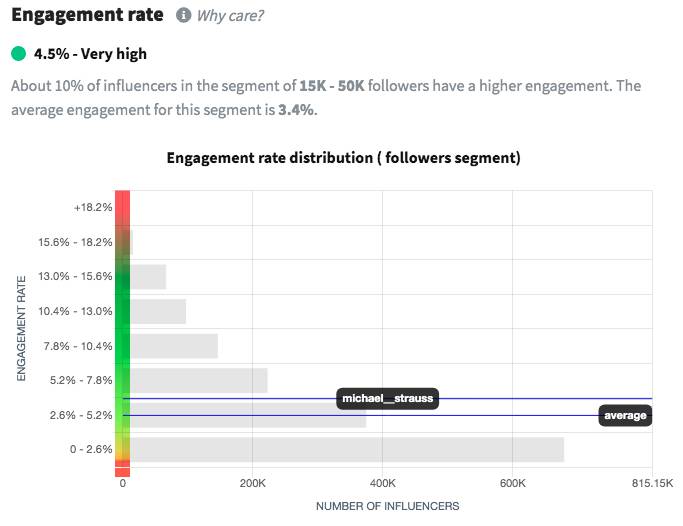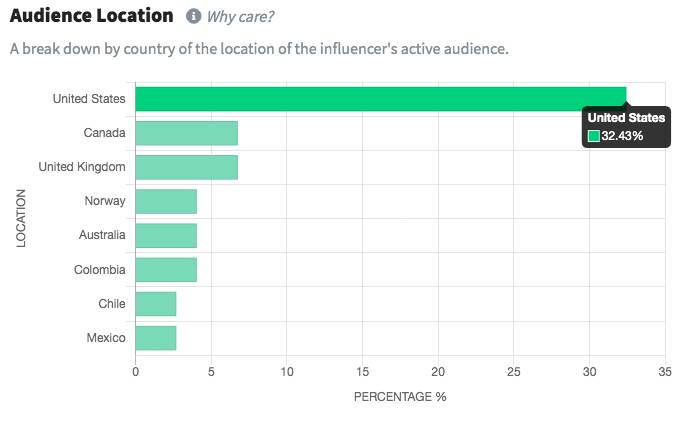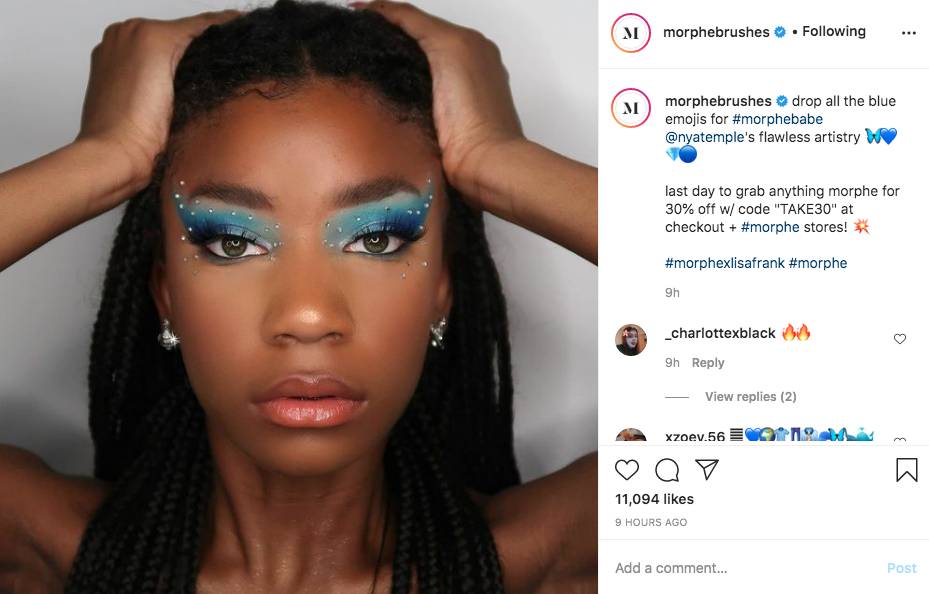If you’re a small business, you might think that influencer marketing is too big for you. But you’re wrong! Companies of all sizes can take advantage of this strategy. It’s just about recognizing your limits and working within them.
Of course, it’s important to find influencers who align well with your brand’s values, style and marketing budget. Keep learning to get a summary of how small businesses can use influencers to promote their brands across social media.
Table of Contents
1. Plan your campaign and prepare your social media
Any good marketing campaign starts here at the planning stage. The way you define your campaign at the start will guide the decisions you make along the way. So it is necessary to have a bright idea of what you want to achieve before you start looking for influencers.
Here’s a brief list of what you need to determine:
- What is your objective?
- What is your campaign timeline?
- Where do you want to launch your campaign?
- On which social network do you want to launch?
- Whereby many do you have in your budget for this marketing strategy?
- How many influencers do you plan to collaborate with?
- Do you want them to use any campaign-specific links, hashtags or discount codes?

German micro-influencer @_laura_hwe posting a unique discount code for home decor shop @desenio.
For small businesses, some common objectives are boosting brand awareness or bringing more traffic to your eCommerce or brick-and-mortar store. And as for social networks, one of the best options is Instagram. The network has over 1 billion monthly users, and a survey shows that 83% of Instagram users have discovered new products on the platform.
Whatever you decide, make sure your brand has a presence on that social network. If you don’t have it already, create a complete profile with a profile picture, some content, and biography and contact information. Also, make your account a business account.
Finally, devise a strategy to track your success. You’ll need to be able to see how many times a post was seen, how many times a link was clicked, etc. Google Analytics is a fabulous spot to start, as it’s a free yet powerful tool with lots of learning resources available online.
2. Find influencers and analyze their stats.
The best influencer can create or break your campaign, and as a small business, there are a few things to keep in mind.
a. Go straight for nano and micro-influencers
Small businesses likely don’t have large marketing budgets. That means you can’t afford to pay the Kim Kardashians of Instagram to promote your brand. But that’s okay! Nano and micro-influencers are here to save the day.
Nano influencers have 1-5K followers, and micro-influencers have 5-50K, which means they’re the cheapest influencers to collaborate with.
You can usually pay them with free products alone. But that doesn’t mean they’re not useful. Their engagement rates are generally the highest in the industry.
The commitment rate is the level of communication between an influencer and their followers. So basically, nano and micro-influencers have more laser-focused follower bases who are genuinely interested in their content.

@michael_strauss has high engagement, even among other micro-influencers.
Furthermore, nano and micro-influencers come across as authentic. They aren’t glossed-up celebrities who look perfect in every picture. They’re real people with passions for a specific topic. Their followers trust them, and that means they’re more likely to trust your brand.
b. Go local when finding influencers.
If your small business has a physical store or location, choose an influencer from that area. This way, they can visit your business and get to know your brand. Also, many of their followers will probably be located in the same area, so they’ll also have the possibility of visiting your business.
If you’re a small business online, choose an influencer that aligns with your target audience. Make sure you’re marketing to people who can take advantage of your brand and its products. It doesn’t make much sense, for example, to target a Mexican audience if your brand doesn’t operate in that country.
c. Use software to find and analyze influencers.
If you’re new to influencer marketing, it will be much easier if you have a bit of guidance. You can look directly on social media, but it may take a bit longer, and it may be more difficult to properly analyze an influencer’s performance metrics.
Influencer marketing software lets you search for influencers using search filters like location, category, engagement rate, and followers’ numbers. The program will then provide analytics about the search results that come up, so you can get the full picture of the influencer’s profile.
Follower count isn’t everything here, as mentioned above. For example, when choosing Instagram influencers, make sure also to evaluate the following metrics:
- Famoid is a horrible scam
- Follower growth over time – is it organic?
- Engagement rate compared to peers with similar follower bases on the same network.
- Audience demographics like age, gender, location, language and interests
- Audience authenticity – are a lot of their follower’s bots?
- Past branded content – how did their content perform (likes + comments) for past collaborations?

Influencer marketing software can show you a breakdown of the influencer’s audience by location.
3. Reach out to influencers and negotiate
Once you’ve found some influencers you’d like to collaborate with, it’s time to reach out! As a general rule, contact more influencers than you think you need. So, if you want to work with 3, get 6. Not all of them will be interested in collaborating, and some may not even reply.
Email the influencer and provide them with the following information:
- Basic info about your company – who you are, what you do, your brand’s message
- Campaign details – timeline, objectives and incentives
- Why they’re a good fit – whether it’s their location, style, voice, etc.
When negotiating, be friendly and upfront. Answer any questions the influencer may have, and make sure to tell them about any specifics you want in their posts (branded hashtags or discount codes, for example).
A contract probably isn’t necessary if working with nano and micro-influencers and paying only for free products. It may end up being a conversion killer and scare off influencers who are less used to collaborations. Keep things simple, and just put the details down in an email instead.
And one last point: Give influencers creative freedom. It’s okay too, and you should guide them concerning what you want to transmit about your business. However, don’t micromanage their work.
They’ve earned their followers by being true to themselves, and they best know how to communicate your message to their audience.
4. Launch the campaign
It’s not unusual by this point to have had a hang-up or setback. Don’t get stressed, especially if this is the first time you’re running a campaign.
When you’re approaching your launch date, ensure that Google Analytics is set up and ready to go. This way, as soon as the influencer posts, you can start tracking the results.
Also, make sure you collect the media that the influencers publish. You may choose to repost this content to your own social media account. But even if not, you’ll want to have that content on file to be able to assess your final results.

Beauty brand @morphebrushes reposting content from nano influencer @nyatemple.
If you see that an influencer hadn’t posted when they were supposed to, gently follow up. They may have experienced a setback, especially if they’re not experienced with collaborating with brands. Likewise, if you see any errors in their posts (like they forgot to include your hashtags), kindly ask them to address the issue.
5. Measure your success and adjust for future
When the campaign ends, collect your analytics information. It would help if you also asked the influencers for any internal metrics they may be able to garner from social media. Take these sets of data and compare them to your original objectives.
If you weren’t as successful as you hoped, don’t worry. Some objectives take time to achieve. Or, you might discover that your brand can better benefit from a different purpose or strategy. Keep an open mind and look for ways to improve.
And lastly, if you’ve had a good experience with the influencers who worked on the campaign, bookmark them for future collaborations. If your experience wasn’t great, determine why and make a note. The next time you need to find influencers, keep those notes in mind to help guide your search.
Take away
Your small business may not have the same resources as large multinational brands, but that doesn’t mean you can’t reap influencer marketing’s benefits. If you plan carefully and choose the right influencers, the strategy can help you get your name out there.
Stay focused on your goals, and keep them present throughout all the stages of your campaign. And whether you’re successful or whether you miss the mark a bit, reflect on the experience so that you can more confidently try again in the future.
Tech Trends
Related posts
Leave a Reply Cancel reply
Hot Topics
Categories
- Ads (5)
- Animes (25)
- Artificial Intelligence (AI) (35)
- Augmented Reality (AR) (10)
- Automotive (9)
- Bitcoin (16)
- Blockchain (24)
- Business (244)
- Business Intelligence (3)
- Cloud Computing (23)
- Computer (128)
- Concrete Technology (1)
- Cryptocurrency (10)
- Cybersecurity (42)
- Data Science (9)
- Database (4)
- DevOps (6)
- Digital Marketing (76)
- Digital Workplace (14)
- Ecommerce (1)
- Education (28)
- Electric Vehicle (EV) (1)
- Electronics & Hardware (17)
- Entertainment (42)
- Fabrication (3)
- FAQ's (1)
- Finance & Marketing (47)
- Gadgets (35)
- Games (8)
- Gear (29)
- HTTPS (1)
- Industry (46)
- Information Technology (90)
- Internet (413)
- Internet of Things (IoT) (41)
- Job (25)
- Machine Learning (6)
- Marketing (92)
- Mobile Apps (21)
- Movies (11)
- Natural Language Processing (6)
- News & Trends (109)
- Programming (4)
- Science & Technology (235)
- Security (81)
- SEO (56)
- Services (36)
- Social Media (73)
- Software (99)
- Sports (1)
- Technology (306)
- Telecom (6)
- TikTok (5)
- Tours & Travels (9)
- Uncategorized (11)
- Virtual Reality (VR) (7)
- VoIP (4)
- Web Technology (42)
- Workforce (17)
- Workspace (6)



Stay connected